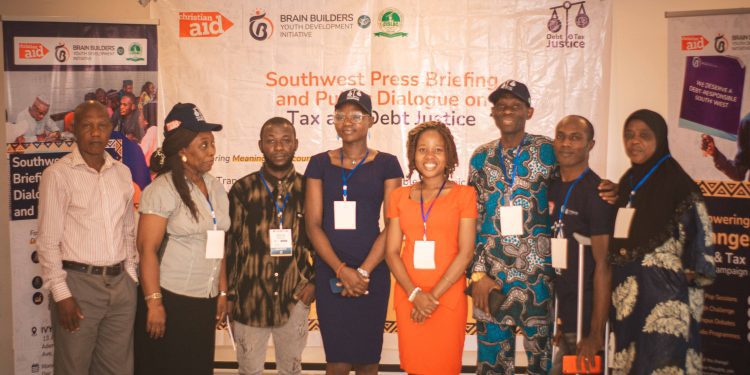The Brain Builders Youth Development Initiative (BBYDI), a renowned Non-Governmental Organization has urged the Lagos state government and other south-western states to exercise caution in their borrowing practices, particularly in relation to foreign loans, deeming such a trend perilous and economically unsound.
The Global Director of BBYDI, Abideen Olasupo, conveyed this advice at the Debt and Tax Justice zonal validation meeting held in Lagos recently.
The zonal meeting was organized to address issues related to tax management and emphasize the crucial need for debt justice within the south-west region.
Additionally, a comprehensive report titled ‘Debt Sustainability Assessment of the Southwest States in Nigeria,’ prepared by BBYDI, was presented during the event.
Olasupo expressed concern about the absence of government officials, specifically the commissioners for finance from the six South-west states, at the program. He emphasized that the lack of representation from government officials in discussions on transparent fiscal policies, accountable governance, and sustainable economic development is a troubling trend that needs to be halted.
“it is worrisome that whenever matters of transparent fiscal policies, accountable governance and sustainable economic development are to be discussed, government representatives are usually absent. Long before today, we sent out invitation letters to all the commissioners for finance across the six south-west states, but it is quite unfortunate that none of them is here today. This is bad practice that has to stop,” he said.
Discussing the findings of the debt sustainability assessment report, which scrutinized the financial status and budget implementation reports of each South-west state between 2020 and 2022, Olasupo highlighted the need for governments, particularly in Lagos, to reassess their borrowing strategies.
He pointed out that escalating debt levels often lead to increased debt service payments, leaving limited budgetary allocations for crucial public services.
Olasupo underscored that Lagos State, in particular, is allocating a substantial portion of its revenue to service debts, emphasizing the importance of curbing the accumulation of foreign loans. He noted that the depreciating value of the naira amplifies the economic risks associated with obtaining loans in foreign currencies.
Due to the volatility of Nigeria’s foreign exchange rate, Olasupo stressed the necessity for the Lagos state government to temper its inclination for accumulating debts denominated in dollars, pounds, and euros. Such practices, he warned, could strain the state’s resources significantly whenever the naira depreciates against the dollar.
The report indicated that Ondo State is the only state with a low risk of debt-to-revenue ratio, while the other five South-western states fall into the medium risk category for the same indicator.
Furthermore, the debt service to revenue ratio of Ekiti, Ogun, Ondo, and Oyo was deemed sustainable, as they are well below the Debt Management Office’s recommended threshold of 50 percent.


